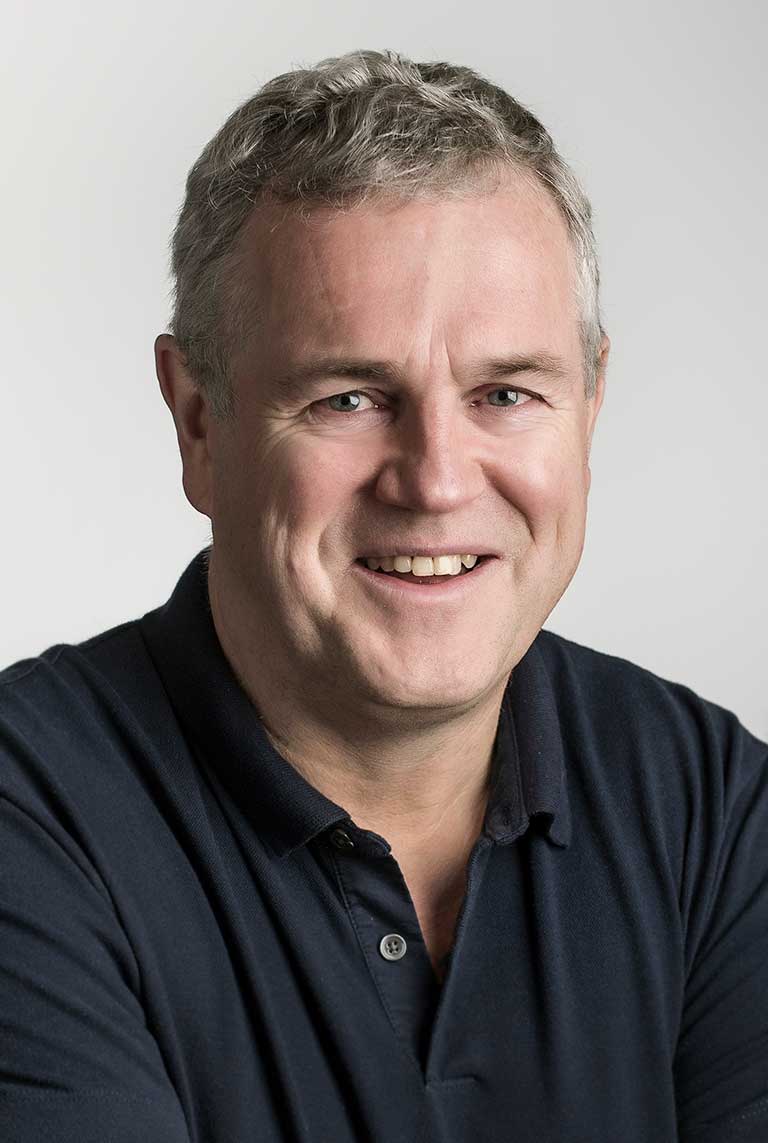Collaboration and Compromise: The Big Picture of Energy Systems Integration

Mark O'Malley is a research fellow at NREL and director of the International Institute for Energy Systems Integration. His expertise in energy systems integration will help guide research direction at NREL. Photo by Dennis Schroeder
Mark O'Malley is a research fellow at the National Renewable Energy Laboratory (NREL), chief scientist of energy systems integration (ESI), and director of the International Institute for Energy Systems Integration (iiESI). He is a world-leading expert on ESI concepts, and he has been laying the field's groundwork for more than two decades. We talked with O'Malley about the path forward for ESI at NREL. Following is a condensed version of our conversation.
What is your role at NREL?
There are four pieces: mentorship, international networking, my own research, and research strategy and direction.
My job is to increase the science quality in the areas I'm good at, but I'm not going to do it by myself. There are a lot of talented young people at NREL, and I want to try to give them advice. My door at NREL is open to anyone—for career advice, scientific advice, anything they'd like.
International collaboration is another important part of my role. NREL is an international laboratory. It just happens to be in Colorado, in the United States. What matters is not the institution; it's the people.
Last, and perhaps most important, I'm going to try the best I can to lay the foundations for the direction of ESI research at NREL.
What is the direction of ESI research?
Well, if you try and reduce carbon emissions, you soon realize that we have all the technology. Sure, wind can get cheaper, solar can get cheaper, but the basic bits are there. The real challenge is: Can we actually put this together? Not just the technology, but systemically. If you put wind and solar on the power system, you end up changing the nature of the power system, and you therefore need to change how you operate, how you plan, how the markets work. This is the big picture.
Will updating the electric grid be a force in creating a more international world?
Yes, absolutely. One of the reasons the electric grid is the way it is is because of the sharing of resources. It has economies of scale. By sharing things across a bigger area, among more people, across political boundaries, it becomes more efficient. Take Hydro-Québec, for example. It is one of the largest producers of renewable energy in North America. Because that energy is flexible in storage, it could be shared and integrated with wind and solar in the whole northeastern continent of North America, and it could result in billions of dollars of savings.
This is a global phenomenon. We need to work together. That's the message that we need to get out, and it involves social scientists, politics, everything. At my age, I'm more interested in putting these pieces together, in helping others—my colleagues and society in general—see the entire picture.
What does the utopia of energy systems look like?
If I handled power systems planning, it would be cheap, efficient, and top-down, and all that. But it would not be something that all of society would like. It's just not going to happen, and that's the most important point. The trick is not to sit down and ask, “What is the best energy system for the future?” That is in the eye of the beholder. What we need to look for is not the best but the most practical. If we can identify that—the most feasible option—we'll have a much more realistic approach. Compromise is realistic, and we should plan for it.
Has iiESI contributed to this perspective?
Absolutely, that's why iiESI exists. Its strength has been the opportunity to learn about the other aspects of energy systems. When I spoke at the beginning of the December conference, I said, “You're not here to learn about your own field.” With ESI, we cannot talk about only one element. Everything is connected to everything else, but in this area, everything is really connected.
The vision of iiESI is a global community of scholars and practitioners coordinating efforts in ESI research and development. They've delivered on this vision since 2014 by providing resources, events, and a channel of communication among partners. Exciting changes are expected for iiESI in 2018. Stay caught up with the organization's evolution on the iiESI website.
Last Updated May 28, 2025
